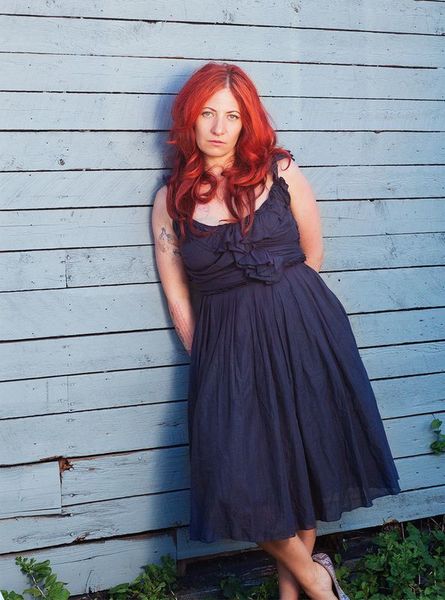Bring Back the Good ‘Ol Days of Getting Lost in Fiction
By Chelene Knight
“The anonymous woman in bed beside me adamantly shakes my shoulder.”—Amber Dawn, Sodom Road Exit
“Sometimes we would hide in the closet when the drunks came home from the bar.”—Tanya Tagaq, Split Tooth
“I go by names. None of my own choosing.”—Anosh Irani, The Parcel
“My mother died at the moment I was born, and so for my whole life there was nothing standing between myself and eternity; at my back was always a bleak, black wind.”—Jamaica Kincaid, Autobiography of My Mother
First lines of novels matter. Maybe one shouldn’t judge a book by its first line, but when it comes to fiction, I certainly do. Whether I’m looking at novels or short stories, One of the first things I do when browsing books in the book store (oh my gosh I miss this), is look for that first line. Am I hooked? Have you piqued my interest? All of the fabulous books mentioned above, hooked me with line one, and there are others, but these books specifically called me to read on. These books dared me, no, triple dared me to place it back on the shelf. Me, standing there in front of walls of spines, and a stack of books in my arms. The first lines hovering in the air around me like cloud-smoke grazing the backs of my ears: “You need to read this.”
Getting lost in books seems like a small part of a past life where time was infinite, reading was an uninterrupted joyous session, and self-care wasn’t a hashtag because well, every day was self-care. For one to fall deep into a fictional house built from the fragments, ideas, and genius that live inside a writer’s head is one of the biggest and most intimate exchanges I can think of. I live for this. I look at the first lines even before a book is a book. Working directly with authors, reading a good number of manuscripts a year, and helping writers find their publishing homes has enabled me to have many conversations about the power of the first line.
While cooped up in my small townhouse isolating myself from everyone I love, aside from my family and my dog, my companions have been all the books I read from long ago. I've been having “book reunions” for more than a month. Yes, I am big fan of rereading, and I think it’s perfectly fine to re-chase that feeling of being completely immersed in a novel. Actually I encourage this chase. But how do these writers do it? How do they create that lure? How do writers decide on a line that will ultimately help the reader decide whether or not to continue reading? You can’t just write a hook line and drop the mic! (I tried, it didn’t work). So how is it that some novels can reach out with clawed hands and slowly wrap around you and pull you in so close? How is this a thing?
When I think back to the books that invited me in this way and turned me inside out in my world and flipped me right side out in theirs,—David Chariandy’s Brother, Toni Morrison’s The Bluest Eye, Gurjinder Basran’s Everything Was Goodbye, Hazel Jane Plante’s Little Blue Encyclopedia, Steven Dunn’s Potted Meat, just to name a few—I noted that aside from the first line lure there were four other aspects of their writing that hugged me.
Characters that I could feel, see, hear. Characters that I swore I knew in a past life.
“I know you from somewhere! How is it that I know you? And since I know you, I suddenly care about you and every decision you make in this book. Ah you remind me of someone! I trust you, too.” This is the conversation that plays out in my head when I read a book with characters that feel like they are sitting right beside me. And when the voice in my head shifts to theirs, I know the writer has done some serious work. And some writers take it to the next level. If the writer can somehow sprinkle various character relatable and well-refined traits amongst a few of their characters, then I feel like there are familiar aspects of all of them, and me.
A familiar setting.
Even if the book is set in a place I have never been or a world imagined, if there's something familiar about the trees, the buildings, the wind, the smell in the air … anything, then the world bleeds out even further in bright and vivid colours. Picture someone spilling a glass of shiraz on the table and the pool expands and grows in a matter of seconds. That’s what an evocative setting can do for me as a reader. The picture keeps painting itself as you read, and it gets more clear with each familiar feeling.
Your CanLit News
Subscribe to Open Book’s newsletter to get local book events, literary content, writing tips, and more in your inbox
The characters share my desires and wants, or my failures.
There’s nothing like not feeling alone (ironically enough). When a character has reached their breaking point or the point of no return, you feel it too cause you’ve been there. And you are rooting for them and you want to tell them “how to get out of the locked and chained door” or that they better “watch out” or “don’t turn around,” or “that won’t work, please lord don’t do that,” you are immersed. You are on the inside of this book.
Teach me something.
Let me pull something tangible out of this book that I can actually use or try in real life. And it doesn’t have to be some big worldly learning, like how to be the best parent ever, or how to escape from a US prison, it can be as small as teaching me the best way to peel an orange, or how a character managed to fix the zipper of their jeans with a piece of floss and a paperclip. These things matter because we are human beings and we instinctively seek out commonalities with our characters, with each other.
So while isolating, and feeling like I am lost in my own world, I flipped the switch and decided to get lost in someone else’s, even if it does feel like I’ve been there before.
The views expressed by Open Book columnists are those held by the authors and do not necessarily reflect the views of Open Book.
Chelene Knight is the author of the poetry collection Braided Skin and the memoir Dear Current Occupant, winner of the 2018 Vancouver Book Award. Her essays have appeared in multiple Canadian and American literary journals, plus the Globe and Mail and the Toronto Star. Her work is anthologized in Making Room, Love Me True, Sustenance, The Summer Book, and Black Writers Matter.
The Toronto Star called Knight, “one of the storytellers we need most right now.” In addition to her work as a writer, Knight is managing editor at Room, programming director for the Growing Room Festival, and CEO of #LearnWritingEssentials. She often gives talks about home, belonging and belief, inclusivity, and community building through authentic storytelling.
Knight is currently working on Junie, a novel set in Vancouver’s Hogan’s Alley, forthcoming in 2020.





